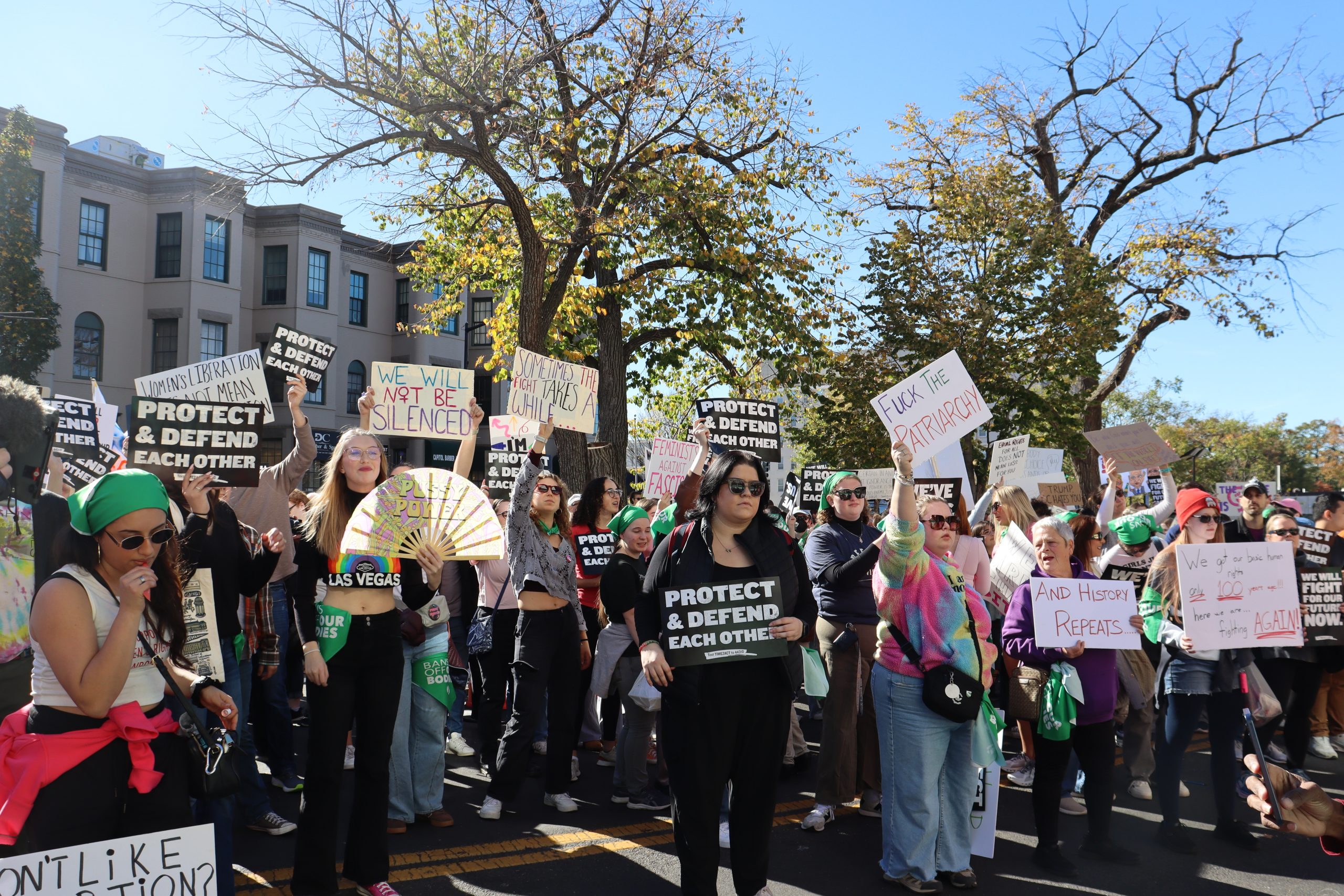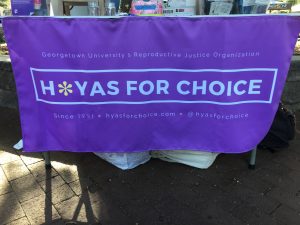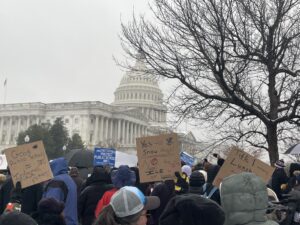Several hundred protesters gathered on the streets of D.C. on Nov. 9 in response to President Donald Trump’s reelection. The “Time to Resist” rally came only a week after 10,000 people assembled for another Women’s March in anticipation of the election.
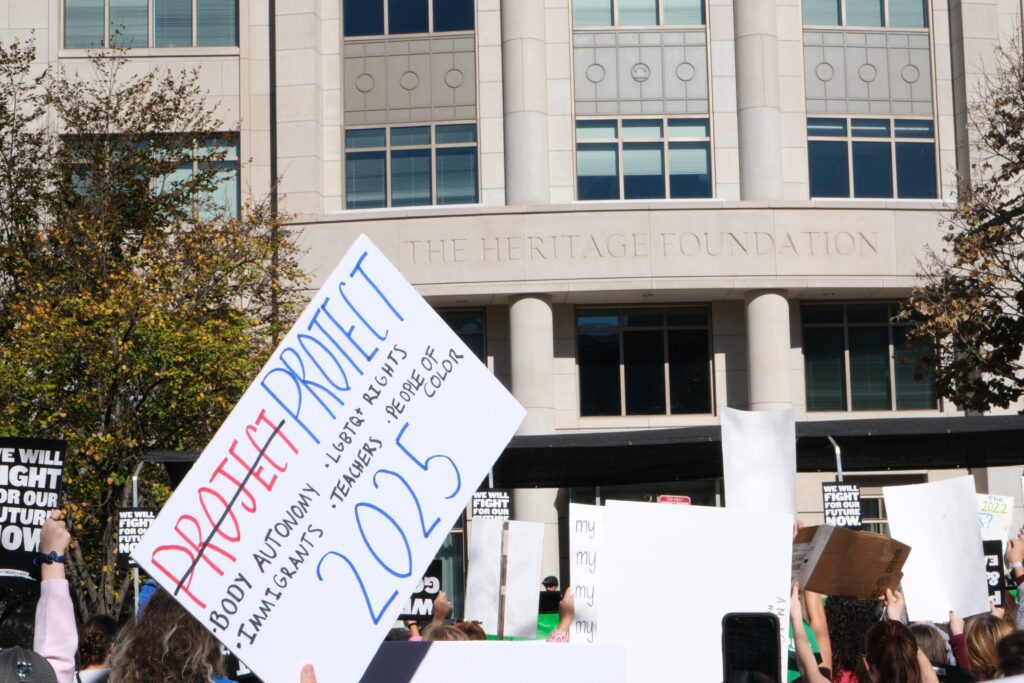 Photo by Sydney Carroll
Photo by Sydney Carroll
Protesters met on Massachusetts Ave. outside the headquarters of the Heritage Foundation, the conservative think tank behind Project 2025. Project 2025 is a detailed plan on how a Republican president could overhaul the executive branch and enact conservative policies. While Trump has denied any connection to the project, many members of his campaign team and advisors from his former administration contributed to its creation, including its proposed restrictions on reproductive rights.
Organizers asked participants to bring pots, pans, and other noise-making instruments. Combined with chanting, music, and a live band, the demonstration was loud and lively.
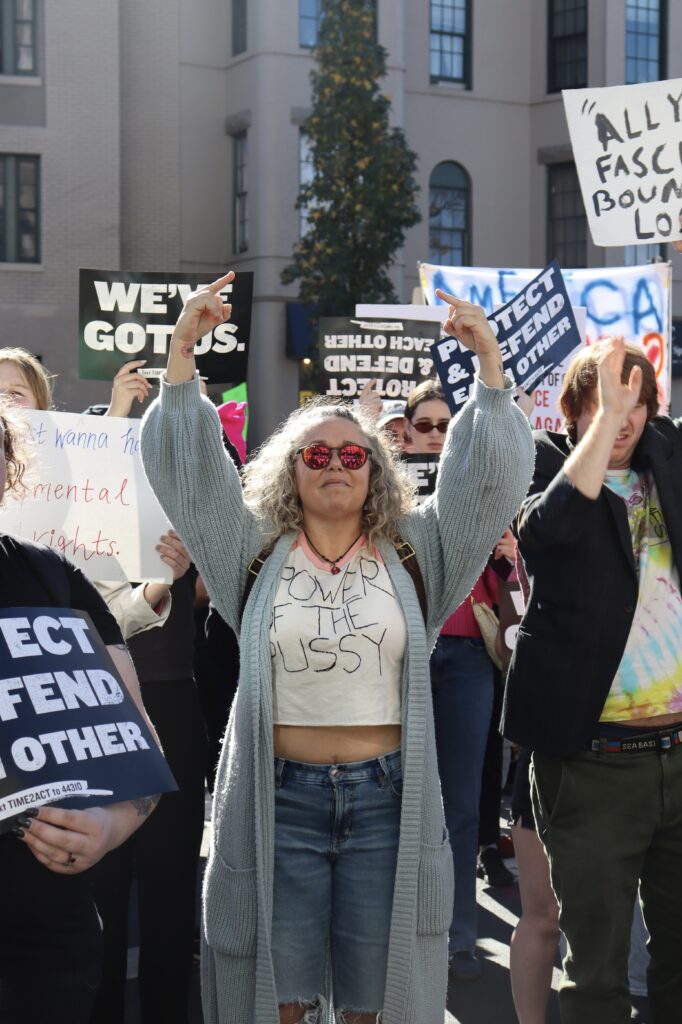 Photo by Katie Doran
Photo by Katie Doran
Protesters expressed anger, fear, and sadness over the results of the election. The Voice spoke to organizers and rally participants about what the demonstration meant to them, and how they see women’s rights changing under four more years of Trump.
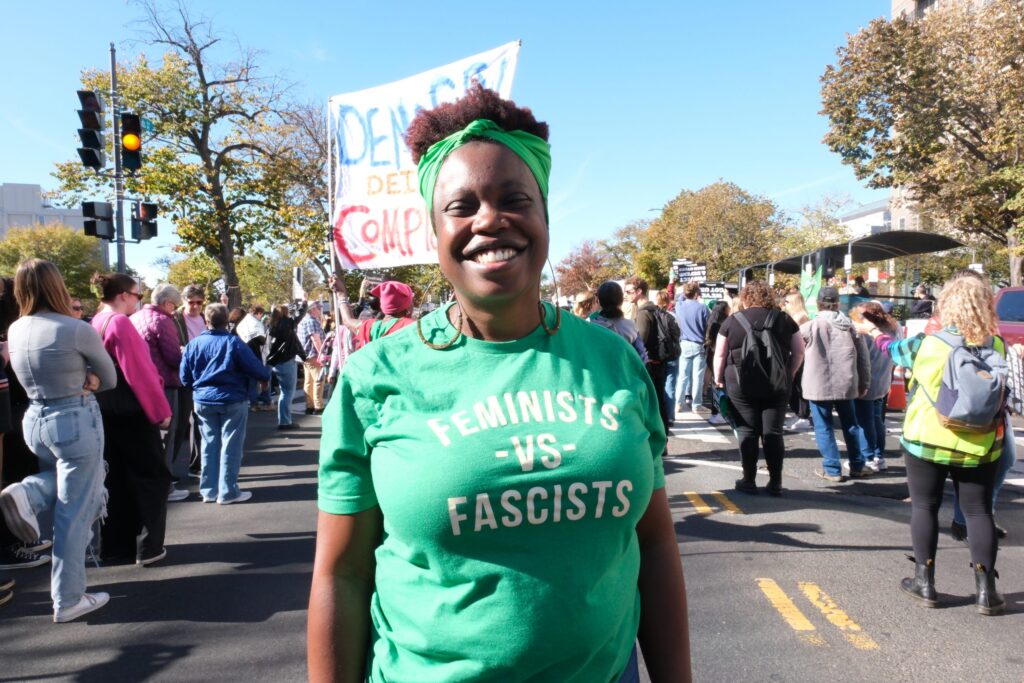 Photo by Sydney Carroll
Photo by Sydney Carroll
Tamika Middleton is the Managing Director of Women’s March. Middleton said to the Voice that this march was organized to provide community in the wake of the election results.
“We saw and heard in our mass calls, in our comments, in our inboxes, that people were feeling anger, people were feeling frustration, people were feeling despair, sadness,” Middleton said. “We wanted to give them a place to channel those energies, to be in community together, and also demonstrate that there is not a broad mandate in support of policies like the Heritage Foundation is pushing.”
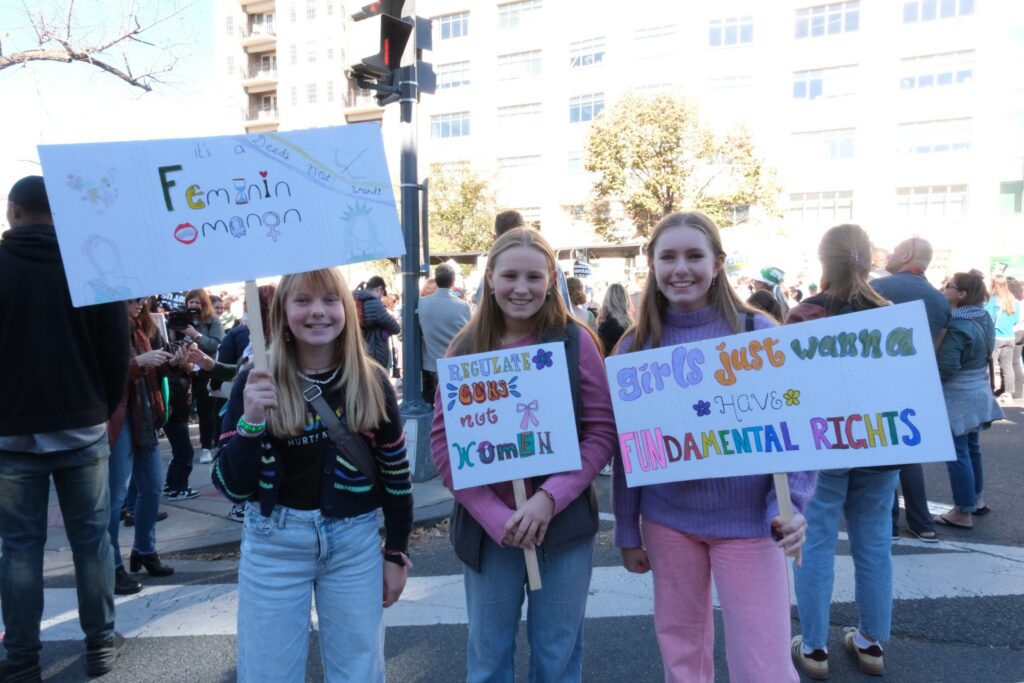 Photo by Sydney Carroll
Photo by Sydney Carroll
Alison, Phoebe, and Heidi, middle and high school students from New York, came to the rally after hearing about it while visiting friends in D.C. They told the Voice that they felt the need to make their voices heard after the election, even if they themselves couldn’t vote.
“With the recent results of the election and everything, there’s a lot going on in our society that’s just not good for women,” Alison, who spoke to the Voice on the condition that her last name not be used because she’s a minor, said. “I think it’s important to show your support, and we’re still here and proud.”
The three also hope that those like the Heritage Foundation who influence U.S. policy pay attention to the issues that matter to younger generations.
“We should be focusing on climate change for future generations, and not regulating what women can do with their bodies,” Phoebe said.
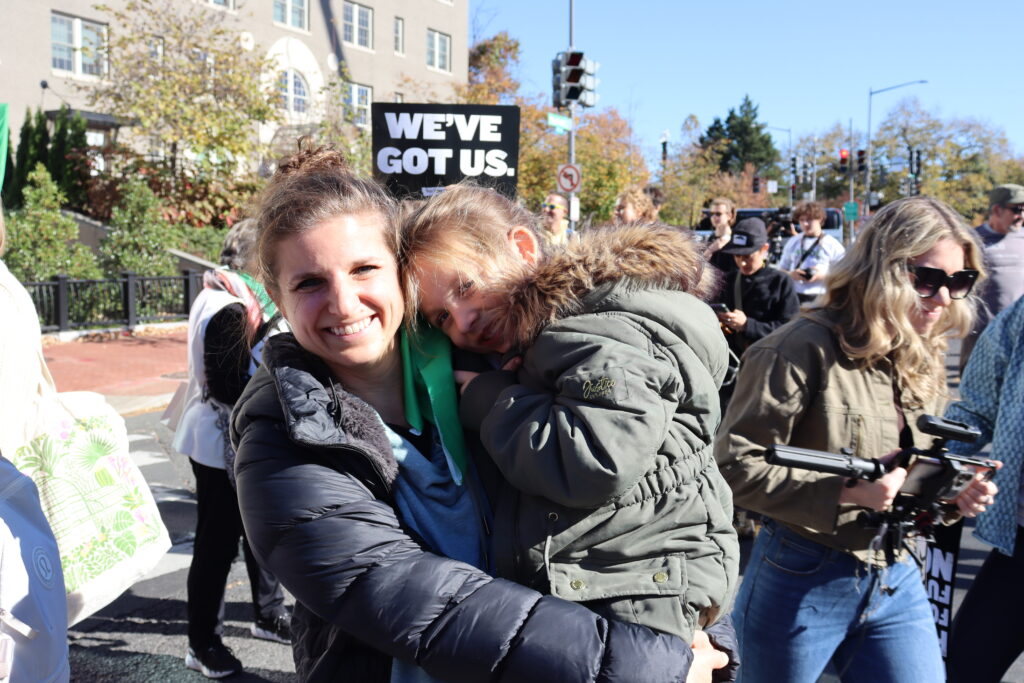 Photo by Katie Doran
Photo by Katie Doran
Stacy Kane, a resident of D.C., attended the rally with her young daughter.
“I’m down here to protect all the people that got clearly shown in the election that they are not protected. Specifically, I’m here to fight for Black people and Black liberation. I believe more white people need to show up for Black people,” Kane said.
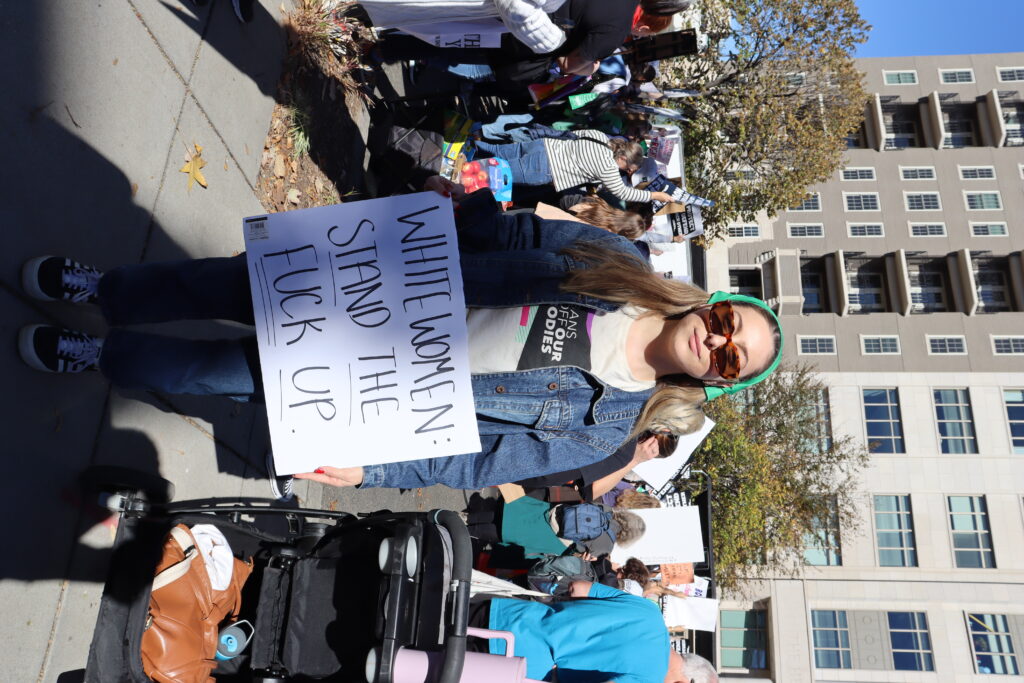 Photo by Katie Doran
Photo by Katie Doran
Alice Still is a student at American University who was inspired to protest by Vice President Harris’s concession speech. She said that the march presented an opportunity to get out of bed and to “take action and resist and persist.”
“I’ve had about four days to cry and process and grieve what could have and should have been, and now we need somewhere to deposit our anger and energy into,” Still said.
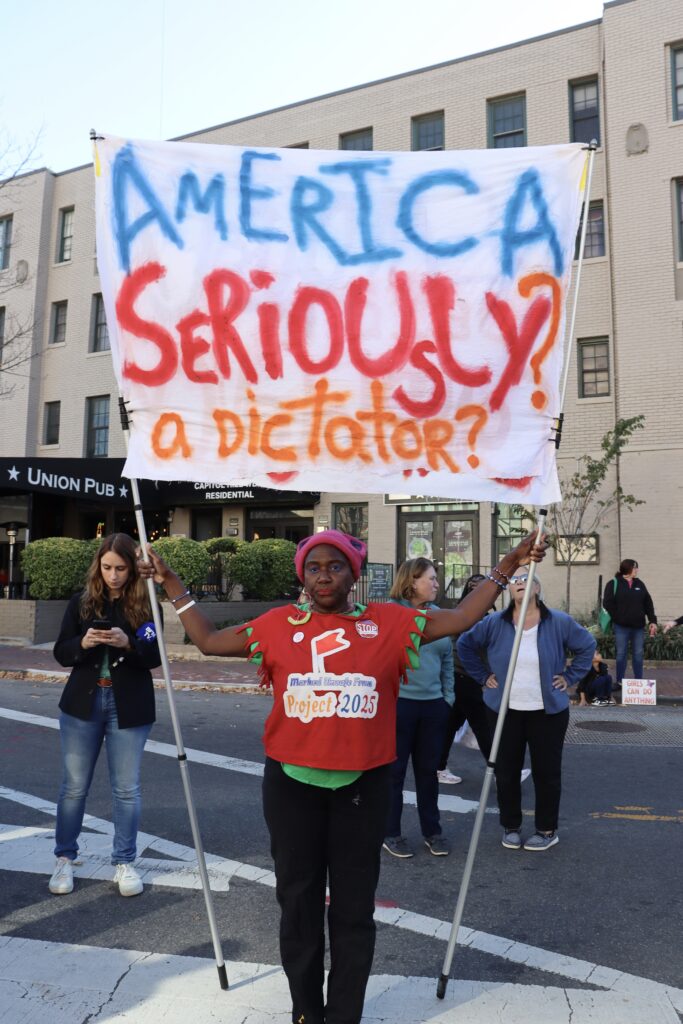 Photo by Katie Doran
Photo by Katie Doran
Nadine Feiler is from Maryland, and expressed frustration with voters who she said did not understand the dangers of a Trump presidency and Project 2025.
“The message wasn’t important enough for them—gas and the price of eggs is more important than democracy and freedom,” Feiler said of those who did not vote or voted for Trump. “So I am very disappointed. I’m very angry that we’re not used to using critical thinking in this country, and that we are so easily, easily persuaded by misinformation and disinformation.”
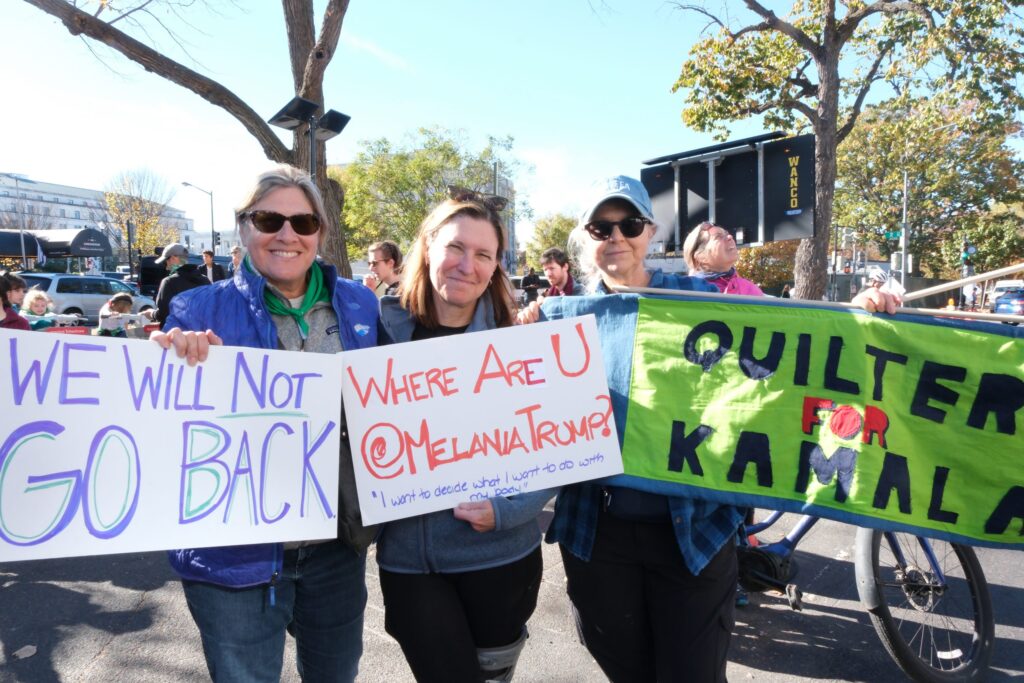 Photo by Sydney Carroll
Photo by Sydney Carroll
Laura Gosse and Michelle Harris both came to the march from Northern Virginia. Both expressed frustration with the election results, but felt that action was the only way to cope.
“We’re exhausted after last week,” Harris said. “I think we have to pick ourselves up, we have to move forward.”
“Silence is the worst thing we can do,” she added. “Silence is complicity. Can’t go there.”
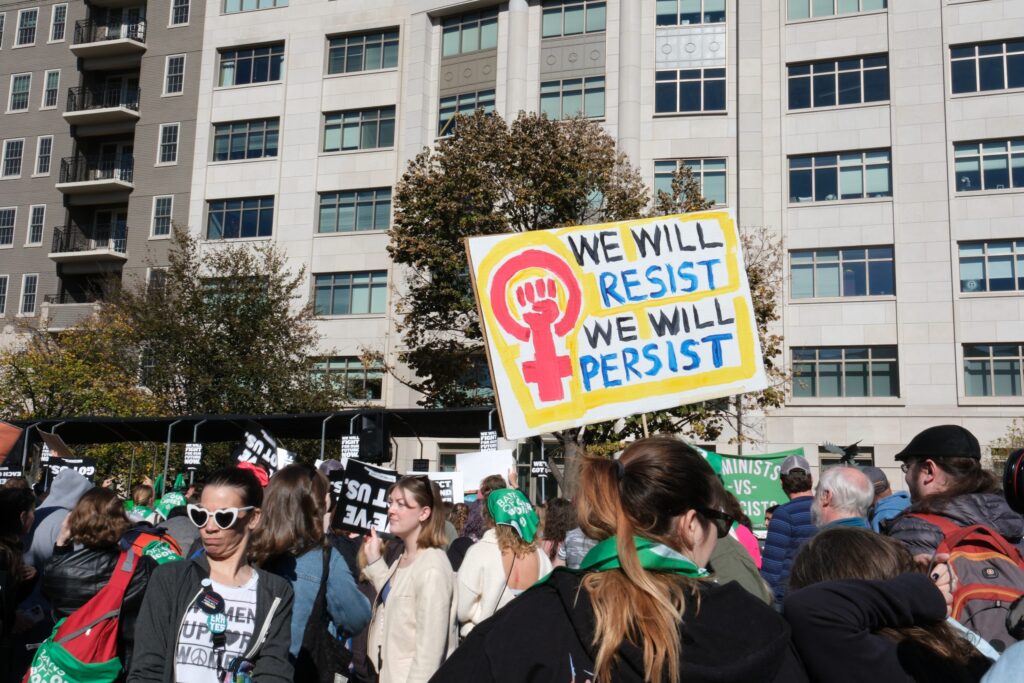 Photo by Sydney Carroll
Photo by Sydney Carroll
Middleton also told the Voice that the Women’s March is planning a large mobilization in January around Trump’s inauguration, which will be called ‘The People’s March on Washington.’
Nearly eight years ago, in response to Trump’s first inauguration, the Women’s March hosted its first protest, which an estimated 450,000 people attended—three times more than the number of attendees at Trump’s inauguration the day before. While D.C. was home to the main protest, concurrent rallies were held around the U.S., drawing between three and five million participants around the country. The first Women’s March was, at the time, the largest single-day protest in American history.
Middleton is excited for the January march, and hopes others will join.
“We can’t wait to see everybody in the streets in January.”


